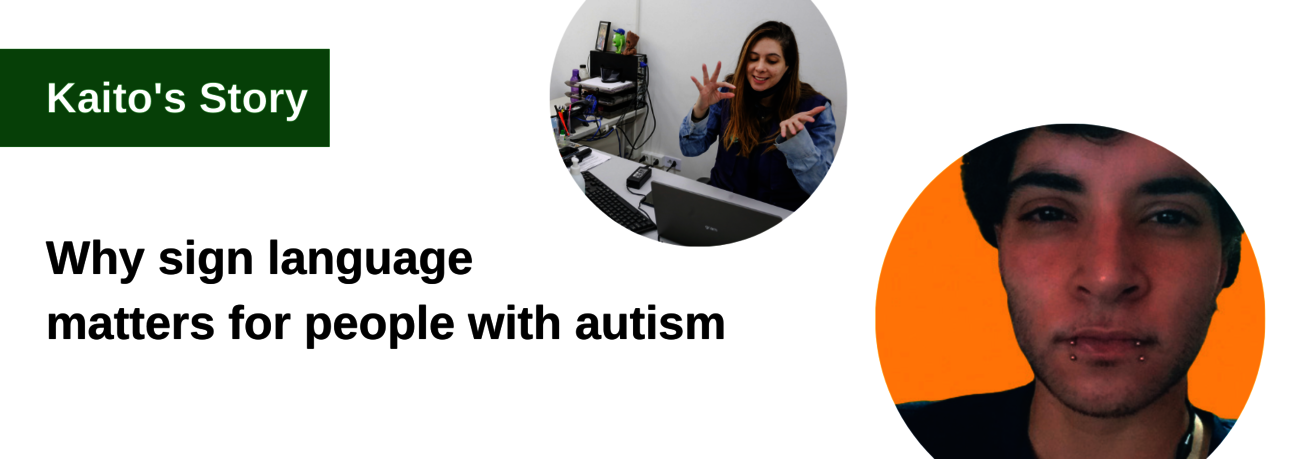My name is Kaito and I am autistic. Learning Libras, the Brazilian sign language, is very important to me. There are moments in my day-to-day life when I am nonverbal. That does not mean that I do not want to communicate, but that I am not comfortable using my voice to do so. Also, noises and sounds can disturb me, so sign language helps me a lot.
Since I use headphones almost every time that I am out of my house, with sign language I am still able to talk to people and feel comfortable doing so. More people should understand the importance of sign language. All people should join the conversation!
“Sign language helps not only deaf people. As an autistic person I benefit from this learning as well.”
— Kaito Benayon
About Curitiba: A city organizing weekly conversations in public spaces with citizens in sign language
The Curitiba City Hall is part of the city administration of Curitiba, the capital of Brazil’s southern state of Paraná. As part of its inclusion strategy, it launched the Conversation in Libras programme, offering weekly face-to-face meetings in its public spaces that improve the interaction and communication in Libras, the Brazilian sign language. When the pandemic hit, conversations switched to online. Between 2018 and 2020, some 4,500 citizens of Curitiba met and communicated in Libras.
In 2022, this initiative by the Curitiba City Hall received a Zero Project Award for its innovative approach, scalability, and impact to remove barriers for persons with disabilities.
“Libras Conversation allows people to listen with the eyes, talk with the hands, and feel in the heart.”
— Rafael Greca, Mayor, City of Curitiba
A scalable model to remove barriers
Would you like to receive more information on the initiative, and contact the initiators? Find all information in the Zero Project Database along with more than 700 other innovative and scalable solutions to remove barriers for persons with disabilities.
A first version of this article was published in the Zero Project Report 2022 on Accessibility. Download the accessible PDF here, or click here to listen to a summary of the report in easy language.
Curitiba City Hall's Official Website: curitiba.pr.gov.br
Photo Credits: Curitiba City Hall
